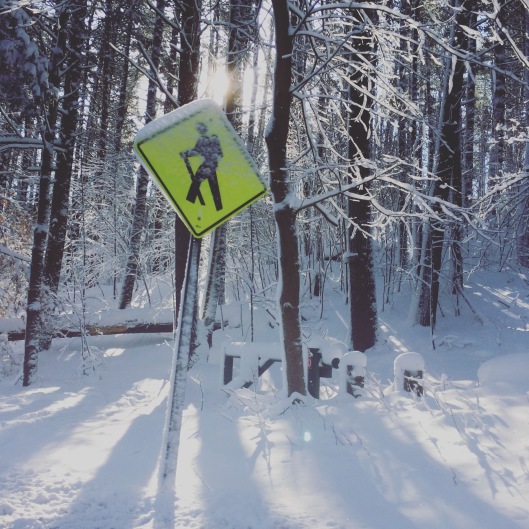
Do you know where in scripture I love Jesus the most? When He’s talking to women. These passages fascinate me: they stop my heart and inevitably bring me to sweet tears.
Whereas Christ speaks in riddles to the Pharisees, parables to the crowds, and to his own disciples be gives speeches which I find endlessly frustrating—when the Lord speaks to women in the scripture he is suddenly incredibly clear, incredibly tender, and my heart breaks and melts towards Him.
I want to share with you one such passage that spoke to my heart recently. It was about Mary & Martha. Now, if you’re like me and were raised in the church, immediately the “busy Martha” story pops into your head. You have heard or read an endless amount of ink spilled over the famous tale. You probably have very clear images of the two sister’s differences in your mind: Martha, busy, bossy, and running the house, the DOER, coming and standing over Jesus and insisting that he TELL MARY TO HELP ME!* And Mary: silent in the story, almost an aside, quietly listening and worshiping at the savior’s feet: commended, for “she has chosen the better part.” You’ve read articles about the differences between service and worship, and have been told to “Be a Mary not a Martha!”—and all these things are probably true, and I need not go over them. And maybe even in this story you see Christ’s tenderness speaking to every anxious women’s heart: when Mary, beside herself, confronts and appeals to the Son of God and he responds by repeating her name like a soothing lullaby to a child.
“Martha, Martha, you are anxious and troubled about many things, but one thing is necessary.”
But this isn’t the story I want to talk about. Nor is it the OTHER story about Mary, the anointing one. Mary of Bethany comes off pretty well in scripture, she’s listening at Jesus’ feet, she’s anointing him with perfume: and apparently John even assumes she’s famous because before he begins the story of Mary, Martha, and Lazarus he basically says, “btw, this is the Mary who anointed Christ’s feet with expensive ointment, ok?”
The scene is set at Jerusalem as Jesus has been sent for by Mary and Martha because their brother Lazarus is ill.
And the scripture says:
“Now Jesus loved Martha, her sister, and Lazarus.”*
Did you notice what it says there? We talk all the time about Jesus’ family and disciples but he also had friends: he knew these three siblings in Bethany, mentioned multiple times in scripture. Here are these three non-disciples and Jesus loves all three of them. Both sisters. He loves Mary and he loves Martha.
Then things get interesting. Jesus hears Lazarus is ill and (for reasons of his own: to show his love and glory by raising Lazarus from the dead, maybe?), instead of going right to them he waits several days till after Lazarus has died. … Till after Lazarus has been dead SEVERAL days. Then Jesus goes to Bethany.
When the sisters hear the news, that Jesus is approaching, they have two very different reactions (in keeping, I write with a smile and a wink, with their temperaments). Martha rushes out of the house to see him (with burning questions, I imagine, in her mind), “but Mary remained seated in the house.” (Hurt? Afraid? Shy? Resentful? Overcome?). We’ve all been there, right? Tragedy strikes and while some of us run to the those who will help, others of us hide in our room.
It’s Martha that first runs to Jesus.
Has she been scanning the horizon for Jesus? Does she have a speech rehearsed? Her heart is burdened and she knows exactly to whom she needs to speak to.
She runs to Jesus and she says, “Lord, if you had been here, my brother would not have died.”
Is she accusing? Is she simply stating the facts? I think, from Jesus’ response, that what is at the heart of Martha’s question-statement is a tempestuous, storming desire to know. This is the “I believed you!” reproach and the “I believe you.” hope all wrapped into one.
And Jesus meets her doubt with honesty and tenderness. I can almost see her staring into Jesus’ face, her eyes bloodshot from weeping (or bleary and strained from holding the tears back—from being strong), and what follows is a rather intellectual (but no less personal) exchange about death, life, resurrection, eternity, and belief.
Jesus said to her, “Your brother will rise again.”
Martha said to him, “I know that he will rise again in the resurrection on the last day.”
Jesus said to her, “I am the resurrection and the life. Whoever believes in me, though he die, yet shall he live, and everyone who lives and believes in me shall never die. Do you believe this?”
She said to him, “Yes, Lord; I believe that you are the Christ, the Son of God, who is coming into the world.
Wow. We all know the “Resurrection & The Life” passage from Tale of Two Cities! Did you know it was from Jesus revealing himself to Martha? Time after time Jesus’ veils his identity in scripture, but with Martha (like with the woman at the well) he says: I. AM. HE. And Martha believes. In no uncertain terms! She knows.
Now it’s time to get Mary. “As soon as she said this, she went and called her sister Mary.” Martha returns to the house, gets Mary, and whispers in her ear, “saying in private, “the Teacher is here and calling for you.”
Big-sister-move-much? Was Mary hunkered down by herself? Waiting for a chance to sip away from the mourners? Was she avoiding Jesus? Or merely modest and circumspect about entering the presence of the King of Kings? Did Jesus actually call her or is Martha embellishing? Who knows. But Mary finally responds. She needed a call. But she goes.
Now when Martha went to Jesus, I get this sense that she ran out of the house when nobody was noticing (at least nobody follows), and she finds Jesus on the road. Mary, however, brings an entourage. Not on purpose. They just follow her, “supposing she was going to the tomb to weep there.” Mary’s grief is so great she draws every other hurting person after her.
But she’s not going to the tomb. She’s going to Jesus.
She finds him right where Martha has left him: he hasn’t changed, he’s in the same spot. And at the sight of Jesus she THROWS herself at his feet! WEEPING. And she says exactly the same thing that her sister said before her:
“Lord, if you had been here, my brother would not have died.”
And Jesus’ response? He is troubled in spirit—and he weeps. Oh, Lord!
He weeps with her!
The Son of God stops and grieves with Mary and the other mourners: even while knowing he will raise Lazarus in just a few short moments.
Do you see the parallel? Two women. Two women loved by Jesus. THEY SAY EXACTLY THE SAME THING. Same words. And Christ responds to each in exactly the way they needed. He doesn’t tell Martha to “shut up,” he doesn’t tell Mary to “suck it up,” he meets mind with minds, truth for questions, and tears with comforting tears.
So are you a Mary or a Martha?
Both are loved and known by Jesus. You don’t have to choose one. Personally I feel like I take turns being these two women. Sometimes you need someone—someone you utterly trust—to be honest with you. And sometimes you just need to be held as you weep. Sometimes we run to the Lord with our doubts and questions (as Job did): knowing he will be straight with us, and sometimes we take our unutterable sorrow to him and learn that He Himself in all His love and power is the answer, and that before His “face questions die away, what other answer would suffice?” (Till We Have Faces, C.S. Lewis).
Christ was able to love these two women in exactly the way they needed to be loved just moments apart.
This is our Savior.
Waiting for us: arms open, ready with his answers and his tears.
Because we are so loved.
*Martha serving text from Luke 10, ESV, emphasis mine.
*Mary & Martha & Lazarus text from John 11, ESV, emphasis mine.
Painting: “The Poem of the Soul” by Louis Janmot.







 Looking back over a year of 40 books has given me ample opportunity for self-reflection. It’s drawn my attention to the two conspicuous omissions which I purposefully left off my list: the book I put down and the book I have yet to finish reading.
Looking back over a year of 40 books has given me ample opportunity for self-reflection. It’s drawn my attention to the two conspicuous omissions which I purposefully left off my list: the book I put down and the book I have yet to finish reading. California descriptions washed over me in waves of nostalgia. I am myself a Californian, and he was describing places I knew and loved.
California descriptions washed over me in waves of nostalgia. I am myself a Californian, and he was describing places I knew and loved. My brother-in-law recently shared with me how he was reading about Jacob wrestling with the Angel of the Lord: refusing to let him depart until he had received a blessing. And he did receive a blessing. Reading scripture is like that, he shared, wrestling with it until you receive a blessing. And isn’t it wonderful that when you wrestle you will be blessed?
My brother-in-law recently shared with me how he was reading about Jacob wrestling with the Angel of the Lord: refusing to let him depart until he had received a blessing. And he did receive a blessing. Reading scripture is like that, he shared, wrestling with it until you receive a blessing. And isn’t it wonderful that when you wrestle you will be blessed?